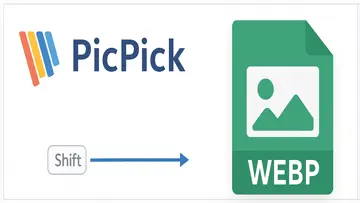Overview of Berkeley Unified Parallel C
Berkeley Unified Parallel C (BUPC) is an extension of the well-known C programming language designed specifically for parallel computing. Developed by Dan Bonachea and his team at the University of California, Berkeley, BUPC aims to simplify the complexity associated with parallel programming while maintaining high performance. This powerful tool serves as a bridge between the needs of software developers and the capabilities of modern multicore and multiprocessor systems.
Key Features
- Unified Programming Model: BUPC allows for a unified programming model by integrating features from various parallel programming paradigms. This enables developers to write code that is both scalable and efficient across different architectures.
- Simplicity in Parallelism: It abstracts many of the low-level details associated with traditional parallel programming, making it more accessible to developers who may not have extensive experience in this area.
- Compatibility: BUPC is designed to work seamlessly with existing C codebases, allowing developers to leverage their knowledge and resources without needing a complete rewrite.
- Dynamic Task Scheduling: The runtime system provides dynamic task scheduling capabilities, enabling better utilization of available computational resources.
- Data-Parallel Constructs: BUPC includes data-parallel language constructs that allow for easy manipulation of large datasets without sacrificing performance.
Performance
Performance is a critical factor for any programming language, especially in the domain of parallel computing. BUPC stands out due to its ability to efficiently manage resources across different hardware configurations. It is optimized for both shared-memory and distributed-memory systems, making it highly versatile.
The implementation employs advanced scheduling algorithms that help balance workload across multiple cores or processors, thereby minimizing idle time and maximizing throughput. Benchmark tests have shown that applications written in BUPC often achieve performance levels comparable to those achieved through more traditional parallel programming approaches, all while requiring less complex code.
User Experience
The user experience is another crucial aspect of any programming language. BUPC focuses on providing clear syntax and logical constructs that are familiar to developers. For example, the inclusion of data-parallel operations allows users to express their computational intentions succinctly without delving into intricate threading or synchronization details. This simplification reduces cognitive load and helps users focus more on writing effective algorithms rather than managing parallelism.
Simplified Debugging and Error Handling
Debugging parallel programs can be notoriously challenging, but BUPC includes features aimed at simplifying this process. The software provides detailed error messages and warnings that guide developers in identifying potential issues within their code. Furthermore, integrated support for logging and tracing allows for easier tracking of execution flow, making it easier to pinpoint problems that arise during runtime.
Community and Support
The Berkeley project enjoys strong backing from a vibrant academic community. This community aspect ensures a steady flow of enhancements, bug fixes, and documentation updates. For users seeking help or resources, various forums and repositories are available where developers can share insights, code snippets, and techniques to optimize performance.
Documentation
Comprehensive documentation is essential for any programming language's usability. BUPC provides extensive resources ranging from quick start guides to more detailed technical descriptions of its features. Tutorials are included to help new users quickly acclimatize themselves with the primary concepts behind the language, facilitating a smoother onboarding process.
What You Can Build with BUPC
BUPC is versatile enough to support various applications across different sectors. Common use cases include:
- Scientific Computing: Applications that require heavy numerical computations benefit significantly from BUPC's data-parallel constructs.
- Image Processing: Tasks involving large-scale image transformations can be optimized using BUPC’s parallel capabilities to speed up processing times.
- Machine Learning: Training complex models can be accelerated by leveraging multiple processors concurrently using BUPC.
- Simulation Software: Simulations often require intensive calculations; using BUPC can enhance performance during these phases.
Comparative Analysis with Other Parallel Programming Models
BUPC's approach differs from other well-known parallel programming models such as OpenMP or MPI by blending aspects from both shared memory and distributed memory environments while maintaining ease-of-use in syntax. While OpenMP focuses on shared memory systems primarily through compiler directives, BUPC delivers a more unified paradigm suitable for diverse architectures. On the other hand, while MPI excels at inter-process communication in distributed systems, it may introduce more complexity than necessary for users who prefer simpler solutions for parallel tasks.
The Future of BUPC
The future trajectory of Berkeley Unified Parallel C looks promising as the demand for efficient parallel processing continues to escalate across multiple industries. With ongoing improvements and active community engagement, BUPC is well-positioned to adapt to emerging trends and technologies in computer science.
The accessibility provided by BUPC’s straightforward syntax paired with its robust performance characteristics makes it an attractive option for developers looking to leverage parallel computing without getting bogged down by traditional complexities.
Übersicht
Berkeley Unified Parallel C ist eine Open Source-Software aus der Kategorie Programmieren, die von Dan Bonachea entwickelt wird.
Die neueste Version von Berkeley Unified Parallel C ist derzeit unbekannt. Die erste Version wurde unserer Datenbank am 16.10.2009 hinzugefügt.
Berkeley Unified Parallel C läuft auf folgenden Betriebssystemen: Windows.
Die Nutzer haben noch keine Bewertung für Berkeley Unified Parallel C gegeben.
Neueste Reviews
|
|
HP 3D DriveGuard
HP 3D DriveGuard: Schützen Sie Ihre Festplatte vor unerwarteten Stürzen |
|
|
Software Update Pro
Halten Sie Ihr System mit Software Update Pro auf dem neuesten Stand! |
|
|
Sweet Home 3D
Gestalten Sie Ihren Traumraum mit Leichtigkeit mit Sweet Home 3D! |
|
|
Canon MF6500 Series
Effizientes und zuverlässiges Drucken mit der Canon MF6500 Serie |
|
|
Windows PC Health Check
Sorgen Sie dafür, dass Ihr PC mit dem Windows PC Health Check reibungslos läuft! |
|
|
EasyUEFI
Verwalten Sie UEFI-Boot-Optionen einfach mit EasyUEFI. |
|
|
UpdateStar Premium Edition
Mit der UpdateStar Premium Edition war es noch nie so einfach, Ihre Software auf dem neuesten Stand zu halten! |
|
|
Microsoft Visual C++ 2015 Redistributable Package
Steigern Sie Ihre Systemleistung mit Microsoft Visual C++ 2015 Redistributable Package! |
|
|
Microsoft Edge
Ein neuer Standard beim Surfen im Internet |
|
|
Google Chrome
Schneller und vielseitiger Webbrowser |
|
|
Microsoft Visual C++ 2010 Redistributable
Wesentliche Komponente zum Ausführen von Visual C++-Anwendungen |
|
|
Microsoft Update Health Tools
Microsoft Update Health Tools: Stellen Sie sicher, dass Ihr System immer auf dem neuesten Stand ist! |





